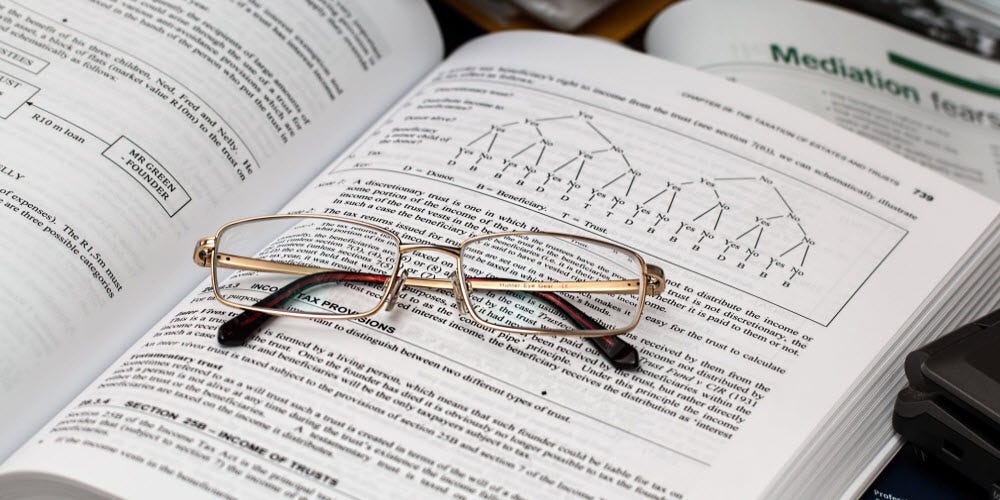Accounting is a critical subject for students, professionals, and business owners. It builds the foundation for understanding financial statements, tax laws, and business strategies. Reading the best accounting books can improve your skills. It will help, whether you are a beginner or an expert.
Top 10 Best Books of Accounting
- “Accounting Made Simple” by Mike Piper
- “Financial Accounting” by Jerry J. Weygandt, Paul D. Kimmel, and Donald E. Kieso
- “Intermediate Accounting” by Donald E. Kieso, Jerry J. Weygandt, and Terry D. Warfield
- “Tax Savvy for Small Business” by Frederick W. Daily
- “Cost Accounting: A Managerial Emphasis” by Charles T. Horngren
- “Principles of Accounting” by Belverd E. Needles
- “Forensic Accounting for Dummies” by Frimette Kass-Shraibman and Vijay S. Sampath
- “Advanced Accounting” by Joe Ben Hoyle, Thomas Schaefer, and Timothy Doupnik
- “Accounting for Dummies” by John A. Tracy
- “The Goal: A Process of Ongoing Improvement” by Eliyahu M. Goldratt
Detailed Overview of Each Book
Accounting Made Simple by Mike Piper
This book is an excellent resource for beginners. Mike Piper breaks down accounting concepts into simple, easy-to-understand terms. It covers the basics of financial statements, income taxes, and more. For authors looking to share valuable guides like this, using the Best Book Promotion Services can help reach a broader audience effectively.
Key Features:
- Clear explanations of accounting principles.
- Examples to clarify complex concepts.
- Simplified guide to financial statements.
This is perfect for students and professionals wanting a quick grasp of accounting basics.
Financial Accounting by Jerry J. Weygandt, Paul D. Kimmel, and Donald E. Kieso
This comprehensive book is widely used in universities and colleges. It offers a deep dive into financial accounting concepts and their applications.
What You’ll Learn:
- Preparing and analyzing financial statements.
- Understanding revenue recognition and accrual accounting.
- Real-world case studies to enhance learning.
It’s a must-read for accounting students who need an academic approach.
Intermediate Accounting by Donald E. Kieso, Jerry J. Weygandt, and Terry D. Warfield
Intermediate Accounting is the go-to textbook for students and professionals. It covers advanced topics in financial accounting with detailed examples and exercises.
Key Highlights:
- Complex topics like leases, pensions, and income taxes.
- Practical applications for real-world scenarios.
- Guidance on preparing for CPA exams.
This book is ideal for those aiming to advance their accounting expertise.
Tax Savvy for Small Business by Frederick W. Daily
This book provides valuable insights into tax planning for small businesses. Frederick W. Daily explains how to maximize deductions and navigate tax regulations.
Features:
- Strategies to reduce tax liabilities.
- Guidance on record-keeping and audits.
- Real-life examples for small business owners.
It’s a great resource for entrepreneurs and accountants working with small businesses.
Cost Accounting: A Managerial Emphasis by Charles T. Horngren
Cost accounting is crucial for decision-making in businesses. This book is about the management side of accounting. It gives tools for internal cost control.
What You’ll Gain:
- Techniques for budgeting and cost analysis.
- Methods for evaluating business performance.
- Application of cost accounting in various industries.
Perfect for accounting professionals in managerial roles.
Principles of Accounting by Belverd E. Needles
This textbook is an excellent introduction to accounting concepts. It covers the foundational principles required for academic and professional success.
Key Topics:
- Understanding the accounting cycle.
- Basics of financial reporting.
- Practical exercises for better learning.
This book is suited for students and anyone new to accounting.
Forensic Accounting for Dummies by Frimette Kass-Shraibman and Vijay S. Sampath
Forensic accounting involves investigating financial fraud and discrepancies. This book introduces the techniques and tools needed for this specialized field.
Key Highlights:
- Basics of fraud detection and prevention.
- Tips for interpreting financial documents.
- Case studies on forensic accounting in action.
Great for professionals interested in fraud analysis and investigation.
Advanced Accounting by Joe Ben Hoyle, Thomas Schaefer, and Timothy Doupnik
This book explores complex accounting topics. They include consolidations, partnerships, and IFRS.
Features:
- In-depth analysis of advanced topics.
- Detailed examples for practical understanding.
- Coverage of emerging trends in accounting.
Ideal for advanced students and professionals preparing for specialized roles.
Accounting for Dummies by John A. Tracy
This book simplifies accounting for beginners. It explains key concepts like bookkeeping, budgeting, and interpreting financial statements.
What’s Inside:
- Easy-to-follow language for non-accountants.
- Overview of accounting practices in business.
- Tips for managing personal finances.
A great starting point for those who find accounting intimidating.
The Goal: A Process of Ongoing Improvement by Eliyahu M. Goldratt
While not an accounting book, The Goal focuses on improving business processes and efficiency. It’s widely read by accountants and business leaders alike.
Key Takeaways:
- Identifying bottlenecks in operations.
- Strategies for continuous improvement.
- Insights into cost management and profitability.
This book is for professionals. It links accounting principles with business strategy.
FAQs
Which book is best for beginners in accounting?
“Accounting Made Simple” by Mike Piper is the best choice for beginners. It has clear explanations and practical examples.
Are these books suitable for CPA exam preparation?
Yes, “Intermediate Accounting” and “Advanced Accounting” are highly recommended for CPA candidates.
What’s the best book for business owners?
“Tax Savvy for Small Business” by Frederick W. Daily is for owners seeking tax and financial planning advice.
Can I use these books for self-study?
Absolutely. Most of these books are written in a way that makes them suitable for independent learning.
Conclusion
Accounting is a dynamic and essential field that demands continuous learning. The best accounting books here offer insights into basic and advanced topics. These books can boost your knowledge and skills. They’re for students, professionals, and business owners. Start your accounting journey with one of these top books. They are highly recommended. They will build a strong foundation for success.

